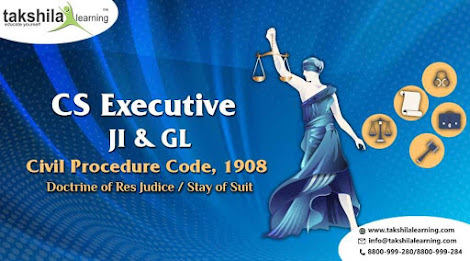In the previous article, we understood the structure of the civil courts and the jurisdiction of the courts and the jurisdiction of the courts. Now we're going to learn about the "Res Sub Judice Doctrine/Stay of Suit" So we're starting here…
General understanding of the Doctrine of Res Sub Judice/Stay of Suit and of the Doctrine of Res Judicata:
According to Section 10 of the Code of Civil Procedure, which deals with the Doctrine of Res Sub Judice, which deals with the stay of the cases under consideration or adjudication is still pending before the Court, whereas according to Section 11 of the Civil Procedure Court, which deals with the Doctrine of Res Judicata, which deals with the matters already decided.
Doctrine of the Judiciary/Stay of the Suit:
Pursuant to Section 10 of the CPC, the rule in the Doctrine of Res Judice prevents courts of concurrent jurisdiction, i.e. 'courts that have the capacity to exercise judicial review by different courts at the same time, within the same territory and on the same subject matter,' from taking parallel action in respect of the same subject matter at the same time. This rule was introduced in order to avoid a conflict of judgment between the two Courts having concurrent jurisdiction.
What are the basic conditions for the Suit Stay:
We can say that there are essentially four conditions for the Stay of Suit, which are as follows:
There must be two suits instituted at different times, one of which was previously instituted and the other which was subsequently instituted.
The matter at issue in both the latter suits shall be the same, either directly or substantially, as in the earlier suits.
The two suits shall also be between the same parties.
The former suit is pending, i.e. it must not have been decided either by the same court or by any other competent court, but not by a foreign court.
If all of the above conditions are met, the Court shall be empowered to stay with the latter suit and not the former suit.
Doctrine of Res Judicata/Suite Barred:
Under Section 11 of the CPC, the Doctrine of Res Judicata rule precludes two different decrees on the same subject. In other words, this rule deals with the barring or restriction of the recurrence of litigation on the same issues. This rule has been introduced in order to put an end to or limit litigation on the same issues.
What are the basic requirements of Res Judicata:
We can say that there are essentially five conditions for Res Judicata which are as follows:
The matter must be directly or substantially at issue in both the former and the subsequent suits.
Both suits shall be made between the same parties.
The parties were to have litigated under the same title.
The court that has decided the former suit must be a competent court.
The matter was to be decided on the merits and the final decision was to be taken after the hearing.
Purposes of the Doctrine of the Judicata:
The main purpose of this doctrine is to prevent it from happening
Injustice of the parties to the suit
Necessary waste of court resources
Multiply of suits
Recovery of the defendant's damages twice for the same injury.
The Doctrine of Res Judicata is based on three Roman maxims, and the Doctrine of Res Judicata is of two types that we will deal with in our next article.
Learn JI & GL video classes & Pendrive based video lectures here…
Thanks for Reading, Hope that this article will Help.
Now prepare smartly for CS EXECUTIVE TEST with our CS Executive Online Classes Via.. cs executive online lectures Learn direct from your home/office. We here at Takshila Learning provide you the CS Executive Video Lectures, CS Executive Pen drive Classes along with CS Executive STUDY MATERIAL and ICSI Executive Study Material to help you prepare for your CS Executive Exam with the utmost ease.
Visit Takshila Learning for More Information About CS Executive Course
Call at 8800999280 / 8800999283 / 8800999284

Comments
Post a Comment
Thank you we will contact ASAP.